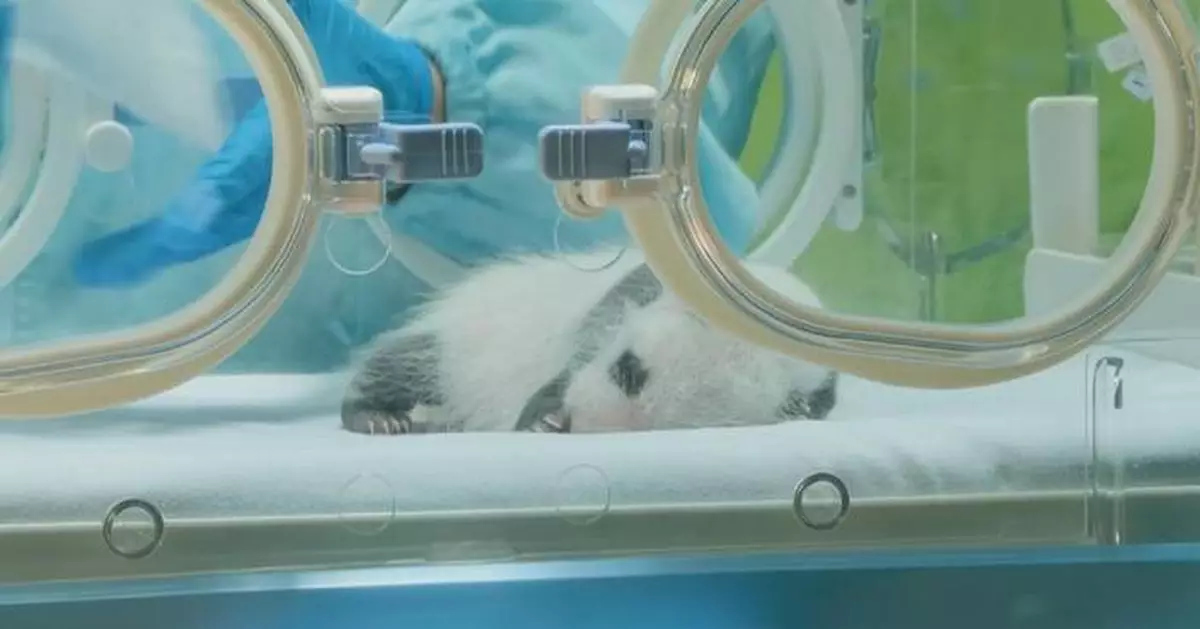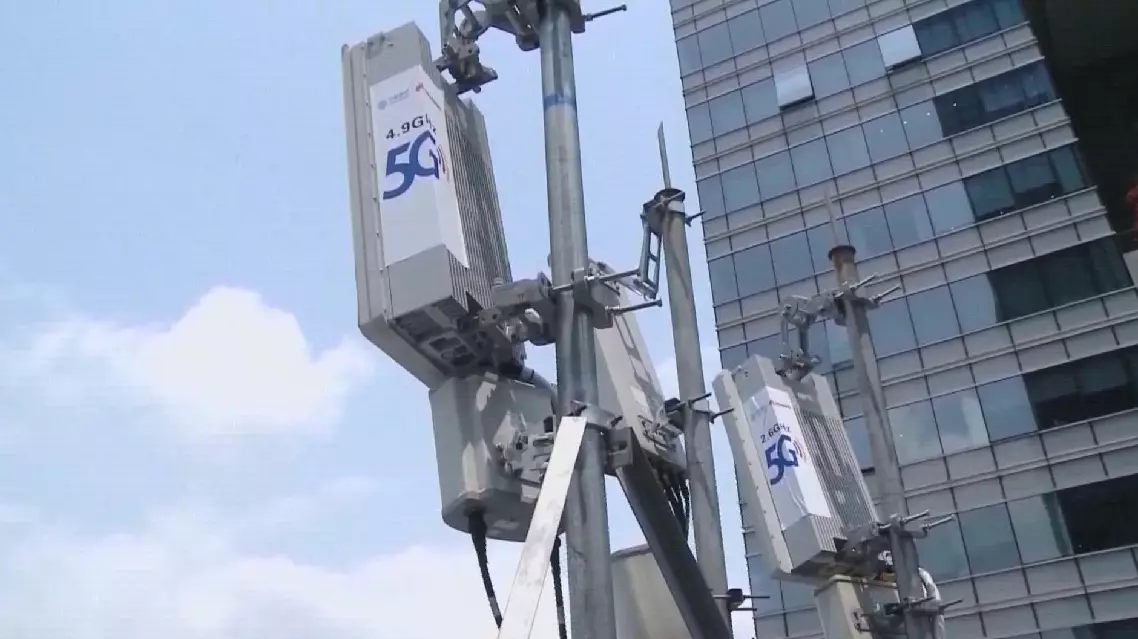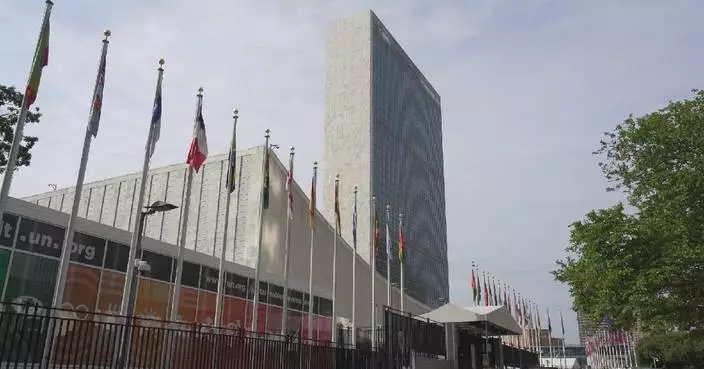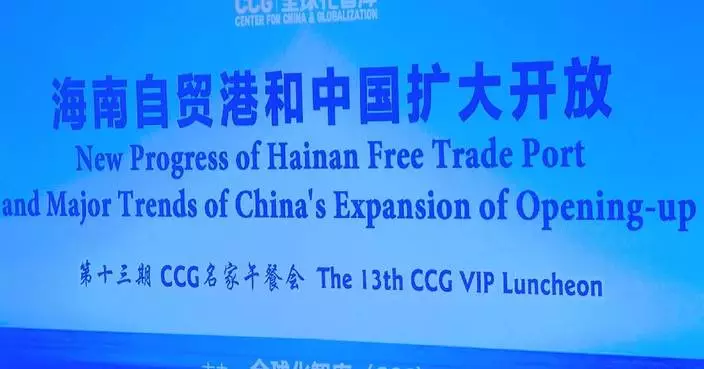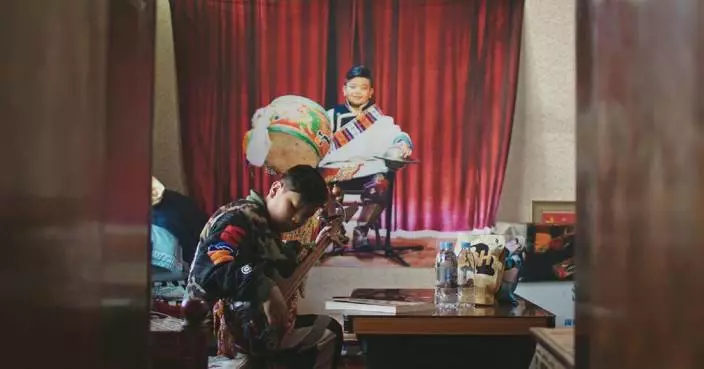A 25-day-old newborn panda cub at Chimelong Safari Park in south China's Guangzhou was returned to her mother's embrace on Saturday after undergoing its fifth physical examination.
Mengbao, born to Mengmeng who is one of the only giant panda triplets in the world, takes a physical checkup every five days and has apparently changed in the past days. Its originally pink skin has faded, and is gradually developing into the classic black and white panda coloring, as observed during the latest health check before it was reunited with her mother. Mengbao now weighs 940.6 grams, more than doubling its weight in just 10 days.
Throughout the physical checkup, Mengbao slept peacefully and occasionally had hypnic jerks, unconscious muscle twitches commonly seen during sleep.
"Once in a while the panda cub would twitch or jerk a little bit, as she is growing, and growing rapidly. Sometimes she would even let out a sound of 'Ah' in sleep, suggesting her brain is developing quickly, just as we may jerk, twitch, or cry in our dream. This is quite normal for panda babies," said Chen Shuqing, Mengbao's keeper.
After confirming the panda cub is in good health and well developed, Mengbao was returned to her mother Mengmeng. But keepers will still monitor the cub closely.
"We attend them around the clock and would intervene promptly upon spotting any unsafe behavior. For instance, suppose Mengmeng hugs the baby and falls asleep, it is possible she could roll over suddenly and accidentally press the baby underneath her. In that case, we must intervene promptly to get her up, lest the little baby is choked," said Chen.
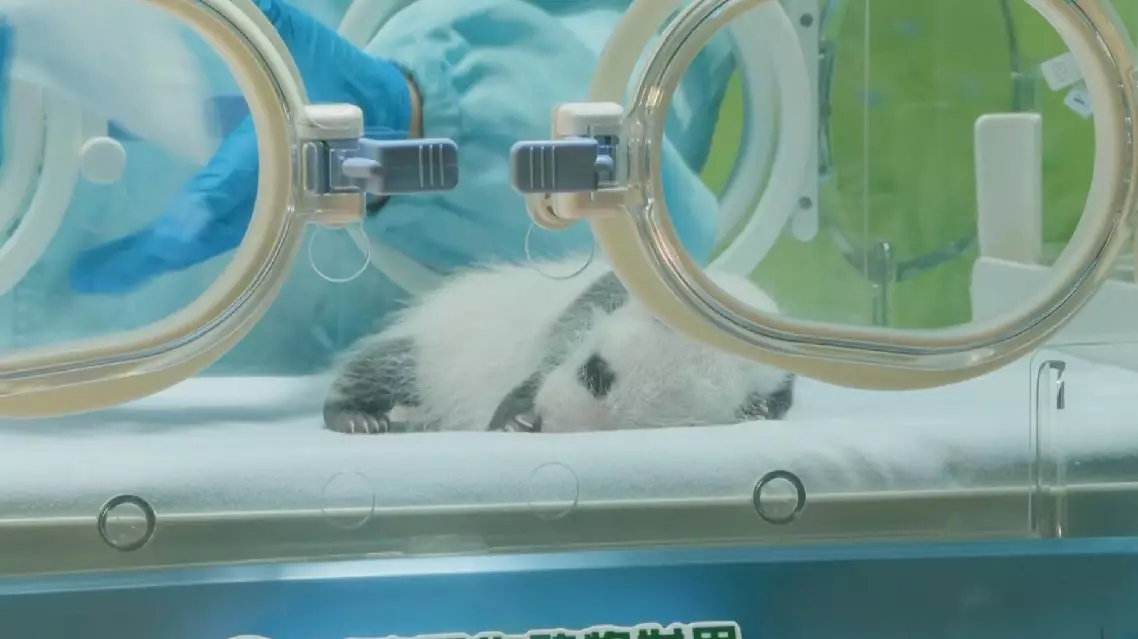
Baby panda reunited with mother at Guangzhou zoo


